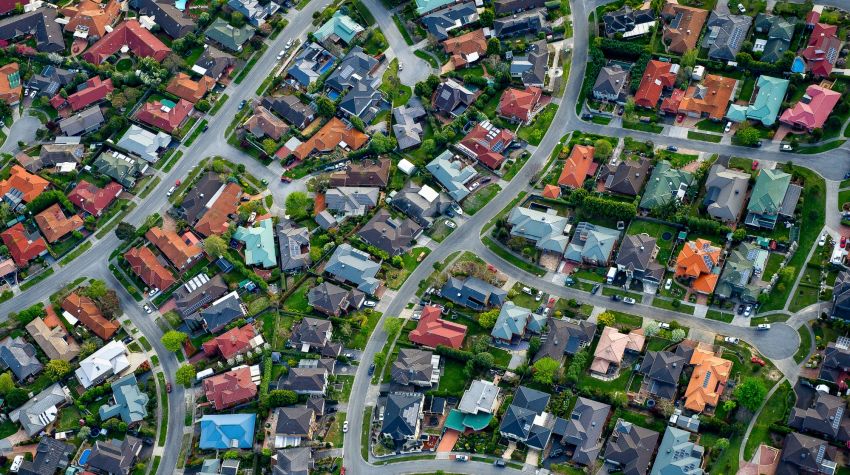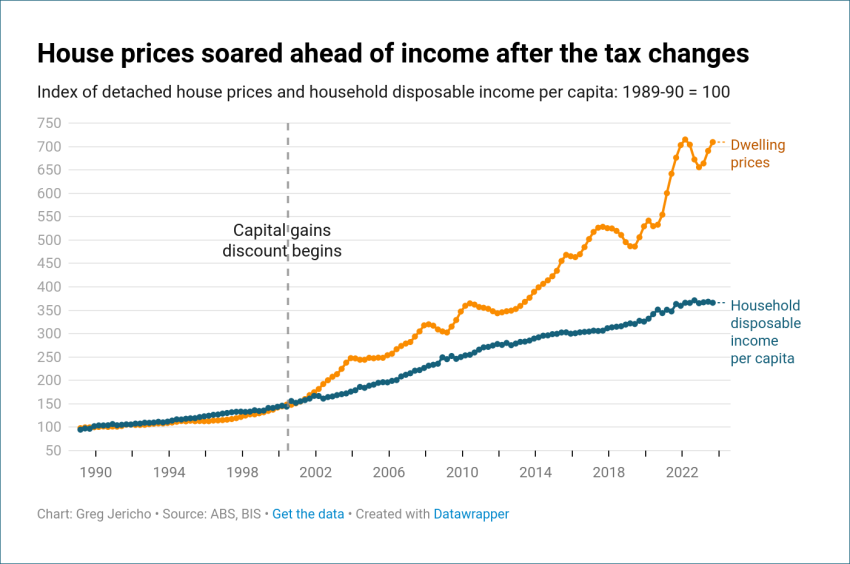
Labor is coming under pressure, ahead of an “economic roundtable” from August 19–21, to agree to wind back negative gearing and capital gains tax (CGT) exemptions, after the Australian Council of Trade Unions (ACTU) and Australian Council of Social Services (ACOSS) added their support to help tackle the housing affordability crisis.
The ACTU on August 3 said the tax benefits to landlords mean people are being locked out of owning their own homes and “rents are skyrocketing in cities and regions”. It said negative gearing and CGT exemptions should be limited to a single property.
ACOSS said on August 7 that tax exemptions are fuelling the housing crisis and negative gearing should be completely scrapped over the next five years. Its submission to the economic roundtable calls for CGT exemptions to be halved over that period.
The Australia Institute last year found that the richest 10% receive more than half of the benefits from the capital gains discount and tax rental deductions. The richest received nearly $13 billion this way in 2020–21, more than the bottom 90% combined.
It also found that these tax measures, which predominantly benefit high-income earners, cost more to the federal budget than all government spending on housing, community amenities and Commonwealth Rent Assistance combined.

ACOSS said funds raised from winding back such regressive measures could be invested in social housing, which, it pointed out, has fallen from 6% to 4% of housing over the past 30 years. It wants this percentage to return to 6% by 2035 and reach 10% by 2045.
A new report from Everybody’s Home, Out of Reach: Australia’s Rental Crisis and the Decline of Social Housing, released in July, found that rents have soared in every capital city, rising by about 60% since 2015.
The average weekly rent for a house in a capital city has gone from $536.9 in 2015 to $858 in 2025 — a rise of 60%. For a unit, it has risen from $419.40 to $649 or 52%.
Kaurna Yerta/Adelaide has had the steepest overall rise — 80% — from $338.40 in 2015 to $611.70 this year, followed by nipaluna/Hobart (75.7%), Magan-djin/Brisbane (66%) and Boorloo/Perth (62.9%).
Garamilla/Darwin had the smallest 10-year rise (13.8%), but unit prices rose 25.3% in the three years from 2022 to now, which suggests rents are also rising.
The report said these increases are fuelled by “dwindling social housing … that has failed to keep pace with demand” and “a hands-off approach from governments”. It said the decline in social housing had forced more people into the private rental market, driving up national prices.
Treasurer Jim Chalmers had said “everything is on the table” for the upcoming productivity roundtable, but Labor is now tempering expectations as it has had to come clean on not being able to reach its own housing targets. It has completed just 2000 of its promised 55,000 social and affordable homes and is well short of its promised 1.2 million new homes over five years.
But instead of winding back subsidies to developers and property investors, or investing more money into building public homes, it is pushing first home buyer grants and its “rent to buy” scheme and wants to scrap planning and construction regulations.
Meanwhile, state Labor governments continue to demolish public housing. Homes Victoria admitted on August 6 that one-in-five households evicted from Naarm/Melbourne’s 44 public housing towers (set for demolition) have been re-housed in the private market.
A pushback by public housing residents, and the ACTU and ACOSS positioning before the roundtable, is adding to the pressure on Labor.
ACTU secretary Sally McManus said living standards will not improve without addressing housing affordability. “Working people can no longer afford to live near where they work and young people are locked out of the housing market and locked into high rents. It’s just not right and has to change.”
South Australian Greens Senator Barbara Pocock said the tax handouts are “fuelling intergenerational inequality”. “Winding back the tax discounts for wealthy property investors is the obvious first step.”
ACOSS wants new building standards for zero-carbon, climate-resilient homes, and tougher rental regulations to improve the energy efficiency of homes, which would help cut power bills for tenants.
Meanwhile, Labor continues to push the supply argument, with housing minister Clare O’Neil telling ABC Radio National on August 8 that the housing crisis is due to a housing shortage and “the best way to alleviate the pressure on Australian is build more homes quickly”.
She is ignoring the facts that the supply of housing has grown faster than the population for the past decade, while house prices have soared.